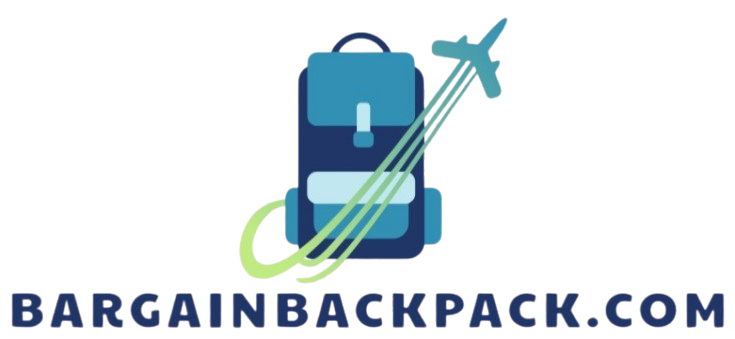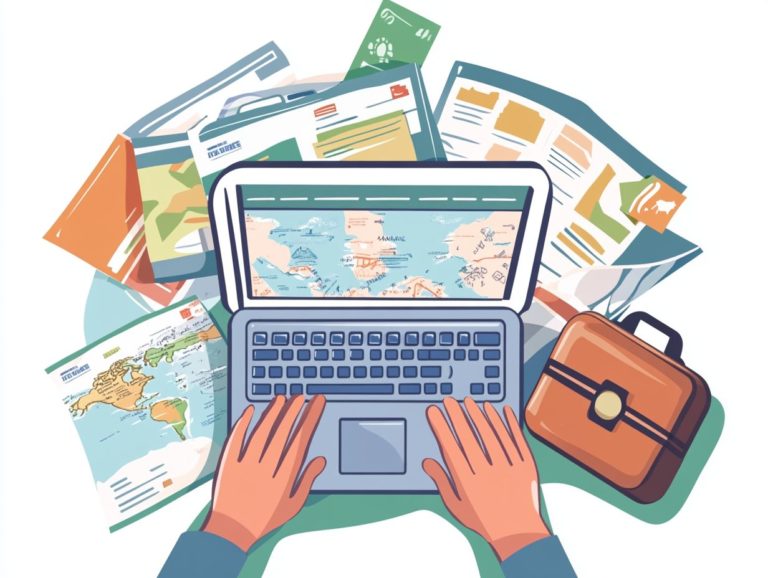How to Negotiate Hotel Rates
Negotiating hotel rates might feel daunting, but it s a game-changer that can save you money and elevate your travel experience!
Whether you’re planning a personal escape or organizing an event, mastering the art of negotiation can truly make a difference.
This guide will navigate you through each step starting with researching the hotel and establishing your budget to confidently leveraging your position during negotiations and skillfully handling counteroffers.
By the end, you ll be equipped with strategies to secure not only an exceptional rate but also potential extras that will enhance your stay.
Dive in and uncover how to transform your hotel bookings into savvy savings!
Contents
- Key Takeaways:
- The Importance of Negotiating Hotel Rates
- Preparing for Negotiations
- Effective Negotiation Strategies
- Dealing with Rejection and Counteroffers
- Finalizing the Deal
- Common Questions About Negotiating Hotel Rates
- What factors should I consider when negotiating hotel rates?
- How can I prepare for negotiating hotel rates?
- Is it possible to negotiate a lower rate with the hotel directly?
- Can I use my membership or loyalty program to negotiate hotel rates?
- What is the best way to approach negotiating hotel rates?
- Are there any additional fees I should be aware of when negotiating hotel rates?
Key Takeaways:

- Negotiating hotel rates can save you money and improve your overall experience.
- Before negotiating, research the hotel and market, set a budget, and define your goals to have a basis for your negotiations.
- Effective negotiation strategies include timing and approach, as well as leveraging your position to your advantage.
The Importance of Negotiating Hotel Rates
Negotiating hotel rates is essential for saving money for businesses that regularly embark on corporate travel (business trips for companies). If you negotiate well, you can secure favorable pricing options, allowing your organization to accommodate employees while elevating their overall travel experience.
Successful negotiations can result in corporate discounts, upgrades, and access to special amenities benefits that are invaluable in today s competitive meeting industry landscape. Engaging in this process not only helps you reduce travel expenses but also fosters long-term relationships with hotel management, enhancing occupancy rates and promoting pricing transparency within your travel program.
Why Negotiating is Worth Your Time
Negotiating is crucial for anyone engaged in travel management (people who plan and organize travel for companies), as it can unlock significant savings on hotel rates and additional perks like discounts and loyalty points for future bookings.
By refining your negotiation skills, you can secure exclusive corporate discounts, making group travel not only more cost-effective but also more enjoyable. For instance, landing a 15% discount for a company retreat at a hotel can lead to substantial cost reductions, especially when multiple rooms are involved.
These corporate partnerships often come with added benefits, such as complimentary breakfast, free meeting spaces, or shuttle services, which elevate the overall business experience.
The ripple effect of these savings and advantages gives you the power to allocate resources to other critical areas of the business and fosters a more efficient and effective travel strategy.
Preparing for Negotiations
Preparation is essential for achieving success in negotiations, starting with comprehensive research into both the hotel and the wider market landscape. This groundwork gives you the power to negotiate corporate hotel rates effectively while optimizing occupancy rates and securing the finest accommodations available.
Researching the Hotel and Market
Conducting thorough research on both the hotel and the market is essential for effective negotiations. It equips you with insights into corporate hotel rates and helps you pinpoint the most advantageous booking platforms available.
To maximize your negotiation power, start by analyzing the amenities hotels provide, such as complimentary breakfast, Wi-Fi, or meeting spaces. These factors can significantly enhance the quality of your corporate stay.
Next, familiarize yourself with current market trends, including seasonal pricing and popular destinations. This knowledge will give you a clearer picture of your negotiating position.
Consider leveraging the expertise of travel management companies; they can streamline the booking process and often maintain strategic partnerships with various hotels. By evaluating these offerings, you can make informed decisions that lead to substantial savings and improved accommodations.
Don’t miss out on the opportunity to unlock incredible savings and enhance your travel experience!
Start negotiating today and watch your travel expenses shrink while your benefits grow!
Setting a Budget and Goals

Establishing a clear budget and specific goals before entering negotiations is essential. This helps align your travel management strategies with your financial goals and maintains pricing transparency in corporate discounts.
By setting realistic budgets, you can more effectively evaluate your travel spending, ensuring that it is not only feasible but also impactful in reducing costs.
Your measurable goals should reflect your company’s broader travel objectives and be grounded in data-driven insights for accurate impact assessment. This strategic alignment gives travel managers the power to pinpoint potential savings opportunities, enhancing their negotiating leverage with suppliers.
Ultimately, prioritizing financial savings alongside pricing transparency in your discussions cultivates a cooperative environment, where both your company and the vendor can achieve mutually beneficial outcomes.
Effective Negotiation Strategies
Ready to boost your negotiation skills? Let’s dive into effective strategies!
By implementing effective negotiation strategies considering elements like timing, approach, and how to leverage your position you can dramatically improve the results of your hotel rate negotiations. This not only ensures optimal booking logistics but also secures the best corporate discounts available to you.
Timing and Approach
The timing and approach you choose during the negotiation process can significantly impact your success in securing favorable corporate discounts or even last-minute deals.
Identifying the right moment is essential; certain times can yield better results, especially when the other party is more open to discussion.
The strategic selection of your negotiation tactics is equally important. Whether you adopt a collaborative style or take a more assertive stance can change the entire dynamic of the conversation.
For example, initiating discussions during off-peak seasons might increase your chances of landing better pricing. Remaining flexible in your approach allows you to adapt to the flow of conversation.
Recognizing and navigating these nuances can ultimately lead to a more successful negotiation outcome, ensuring that the discounts you seek are not just attainable but also advantageous.
Leveraging Your Position
Leveraging your position effectively can yield significant advantages in negotiations, especially when it comes to securing corporate discounts and optimizing booking logistics.
By strategically demonstrating your loyalty to vendors or showcasing the volume of business you bring, you can create a compelling story that enhances your bargaining power.
Employing negotiation strategies like anchoring which means setting a high initial price to shape expectations can also work wonders.
When you express a genuine commitment to a long-term partnership, you may find the other party more inclined to offer favorable terms.
Ultimately, these tactics improve your negotiations and build lasting relationships, leading to even greater benefits in future dealings.
Dealing with Rejection and Counteroffers
Facing pushback? You re not alone here s how to turn it to your advantage! Navigating rejection and counteroffers is a critical aspect of the negotiation process, and your response plays a pivotal role in shaping the traveler experience and optimizing potential financial savings.
How to Handle Pushback

Handling pushback during negotiations demands strategic finesse, allowing you to keep your sights firmly on financial savings while adeptly addressing counteroffers.
To navigate these challenging interactions, it’s essential to maintain your composure and stay laser-focused on your ultimate goal.
A powerful technique is to restate the core value propositions clearly, ensuring that everyone involved grasps the tangible benefits at stake.
Exploring alternative offers can showcase your flexibility and demonstrate a genuine willingness to find common ground.
By posing open-ended questions, you can unearth the underlying concerns of the other party, cultivating a cooperative environment.
Ultimately, these approaches not only help you manage resistance effectively but also pave the way for outcomes that benefit everyone involved, enhancing relationships while boosting financial efficiency.
Start implementing these strategies today!
Finalizing the Deal
Finalizing the deal represents an important step in the negotiation process. It s your opportunity to secure additional amenities and services that not only elevate the overall value of the agreement but also ensure that both parties leave feeling satisfied.
Negotiating Additional Amenities and Services
Negotiating additional amenities and services can significantly enhance the value of your hotel agreement. This is especially important for business travelers and can also help optimize guest room rates.
When you’re discussing options, consider including breakfast selections that cater to various dietary needs, meeting spaces with the latest tools and equipment, or flexible late check-out arrangements to accommodate changing travel schedules.
These negotiations streamline the travel management process and boost guest satisfaction. It s essential for hotel management to actively look for advantageous add-ons. Such carefully considered amenities foster loyalty among guests who appreciate personalized services, ultimately ensuring a mutually beneficial relationship between guests and hotels.
Confirming and Documenting the Agreement
Confirming and documenting the agreement is vital in the negotiation process. This ensures that all parties are aligned, and the terms of the hotel contracts are both clear and binding.
This step protects everyone’s interests and builds a solid foundation for a seamless operational relationship moving forward. Using formal contracts is a best practice that adds legitimacy and protection, as they clearly outline expectations and obligations.
Following up with written communication, like emails or official letters summarizing discussions, can serve as a valuable reference point should any disputes arise later.
Encouraging proactive dialogue throughout the travel management process enhances clarity and trust, ensuring that everyone is truly on the same page.
Common Questions About Negotiating Hotel Rates
What factors should I consider when negotiating hotel rates?

When negotiating hotel rates, consider the following factors:
- Time of year
- Demand for the hotel’s location
- Length of your stay
- Hotel’s amenities
- Room type
- Any additional fees
How can I prepare for negotiating hotel rates?
Before entering into negotiations, research the average prices for hotels in the area. Have alternative options in mind in case your preferred hotel can’t meet your desired rate. Being flexible with your travel dates and understanding your budget will also help!
Is it possible to negotiate a lower rate with the hotel directly?
Yes, you can negotiate a lower rate directly with the hotel. Many hotels are willing to work with guests to find a mutually beneficial rate, especially during slower seasons or for longer stays. Remember to be polite and respectful during the negotiation process!
Can I use my membership or loyalty program to negotiate hotel rates?
If you are a member of a hotel’s loyalty program or have a specific membership, such as AAA or AARP, mention it during negotiations. Hotels often offer discounted rates or special perks for members, so be sure to see if it can help you negotiate a better rate!
What is the best way to approach negotiating hotel rates?
The best way to approach negotiating hotel rates is to be friendly, polite, and reasonable. Make sure to clearly communicate what you need while being open to compromise. Staying calm and respectful during negotiations increases the likelihood of a successful outcome.
Are there any additional fees I should be aware of when negotiating hotel rates?
In addition to the room rate, consider any additional fees that may be added to your bill, such as resort fees, parking fees, or taxes. These fees may not be negotiable, so factor them into your budget when negotiating for a lower rate.






